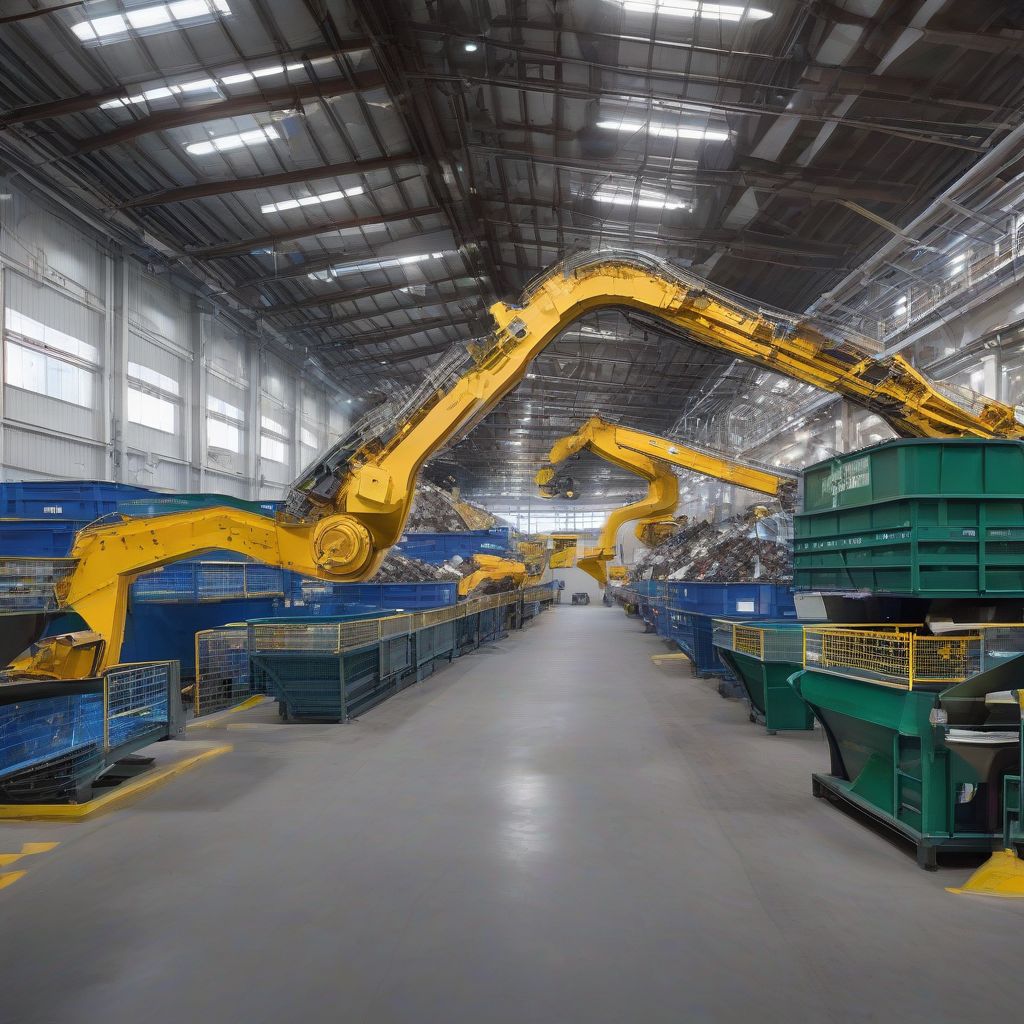Imagine a world where our landfills shrink, resources are reused endlessly, and waste is no longer a burden but a valuable asset. This isn’t a utopian dream, but a future within our grasp thanks to groundbreaking advances in recycling technology and waste management.
For decades, we’ve relied on traditional methods like landfilling and incineration. While these solutions address immediate waste disposal needs, they come with significant environmental drawbacks, from greenhouse gas emissions to soil and water contamination.
However, the landscape is shifting. Driven by a global push for sustainability, scientists and engineers are developing innovative technologies that promise to revolutionize how we manage waste. These advancements aren’t just about improving existing processes; they’re about transforming waste from a problem to a resource, fostering a circular economy that minimizes our environmental impact.
The Rise of Cutting-Edge Recycling Technologies
One of the most exciting developments is the emergence of advanced recycling technologies that go beyond the limitations of traditional methods. These cutting-edge solutions can handle previously non-recyclable materials and recover valuable resources more efficiently.
- Chemical Recycling: Unlike mechanical recycling, which relies on physical processes to break down materials, chemical recycling uses chemical reactions to depolymerize plastics into their original monomers. These monomers can then be used to create virgin-quality plastics, closing the loop on plastic recycling.
- Enzymatic Recycling: This innovative approach harnesses the power of enzymes, nature’s own catalysts, to break down complex polymers in plastics and other materials. Enzymatic recycling operates at lower temperatures and pressures than traditional methods, making it more energy-efficient and environmentally friendly.
- Plasma Gasification: This process uses high-temperature plasma to convert waste into syngas, a valuable fuel source, and slag, a glass-like material used in construction. Plasma gasification offers a clean and efficient way to handle non-recyclable waste, diverting it from landfills and generating valuable resources.
 Advanced Recycling Plant
Advanced Recycling Plant
Smart Waste Management: Optimizing Collection and Sorting
While advanced recycling technologies grab headlines, innovation in waste management is equally crucial for building a sustainable future. Smart waste management systems leverage technology to optimize waste collection and sorting processes, increasing efficiency and resource recovery.
- Sensor-Based Monitoring: By equipping waste bins with sensors that monitor fill levels, waste management companies can optimize collection routes, reducing fuel consumption and emissions. These sensors can also detect the type of waste being disposed of, preventing contamination and improving recycling rates.
- Artificial Intelligence (AI) in Sorting: AI-powered sorting systems are revolutionizing the recycling industry. These systems use computer vision and machine learning to identify and categorize different types of recyclables with remarkable speed and accuracy, even separating materials that are difficult to distinguish with traditional methods.
The Benefits of Embracing Advanced Recycling and Waste Management
The implications of these technological advancements are far-reaching, promising environmental, economic, and social benefits:
- Reduced Landfill Reliance: By increasing recycling rates and diverting waste from landfills, we can significantly reduce greenhouse gas emissions, conserve valuable land, and minimize environmental hazards.
- Resource Conservation: Advanced recycling technologies enable us to recover valuable resources from waste, reducing our dependence on virgin materials and preserving natural resources for future generations.
- Economic Growth and Job Creation: The transition to a circular economy will create new industries, businesses, and jobs in the fields of recycling, renewable energy, and sustainable manufacturing.
- Cleaner and Healthier Communities: By minimizing pollution and promoting responsible waste management, these technologies contribute to cleaner air, water, and soil, creating healthier and more livable communities.
The Future of Waste: Embracing a Circular Economy
The advancements in recycling technology and waste management are paving the way for a future where waste is no longer a problem but a valuable resource. Embracing a circular economy, where materials are continuously reused and recycled, is essential for creating a more sustainable and equitable future.
[amazon bestseller=”circular economy”]
As individuals, we can support this transition by adopting responsible waste management practices in our homes and communities. By reducing our consumption, reusing and repairing items whenever possible, and recycling diligently, we can each play a role in creating a cleaner, healthier, and more sustainable planet for ourselves and generations to come. Let’s embrace innovation, challenge the status quo, and work together to build a world where waste is not a burden but a valuable resource for a thriving future.
